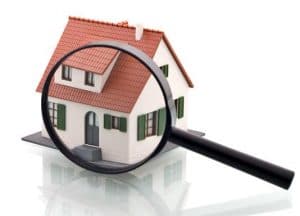Where’s the money? Investing in old or new houses
Introduction
One of the biggest decisions that real estate buyers and investors make is what type of investment property to buy, specifically whether they should invest in new or old.
There are pros and cons to each property type so it’s important to understand all of these before you decide whether to invest in new or old.
In this article, we’ll take you through investment property new and old tips to help you decipher the positives and negatives of each.
Buying an old house
Buy an old house is one of the most simple real estate transactions because it involves investors completing their research, which includes inspections of old properties on the market.
Depending on what part of Australia you live in, the property you’re interested in may be for sale by private treaty or by auction.
These two selling methods are quite different. Private treaty sales are the most common in Australia and involve a buyer and a seller signing a sales contract, which has usually be negotiated by an agent. The contract will outline specifics such as the agreed sale price, deposit amount, settlement date and any special conditions such as a finance or building and pest inspection clauses.
Auctions are when a property is sold on a specific date in front of other interested buyers or bidders. As long as the seller’s price is met, the property can be sold to the highest bidder on that day. There are advantages for the seller in selling by auction as there is generally no special conditions attached to the sale.
Whether you are buying an old property by private treaty or auction, you will need to ensure you complete your necessary due diligence and access legal advice for any special conditions.
It’s important to understand that you need to have completed any inspections or reports, such as building and pest, before auction day to ensure you have all of the information necessary to make an informed decision on whether to bid for the property.
Similarly, when submitting an offer on an old house that’s being sold by private treaty, you should complete your own research, including comparable sales, to ascertain the price that you’re prepared to offer.
Benefits of an old house

If you’re still wondering whether you should be buying an old house or a new house, let’s take a look at some of the benefits of old properties.
Now when we say “old” in the context of this article we don’t mean a property from the 19th Century. We mean a property that simply is not brand-new so it could be only a year or two old.
The majority of benefits from buying an old house, however, come when it is more than five or 10 years old. One of the reasons for this is that after that length of time you can add value or manufacture equity through renovations or refurbishing.
It’s extraordinary what even a coat of paint can do to an old property, let alone a cosmetic or structural renovation that will instantly add value and increase its rental potential.
The actual physical property devalues in time – it’s the land that appreciates – so it’s usually cheaper to buy an old property versus a new property.
A new house or unit will generally be more expensive than an old property due to the actual cost of building it as well as the developer’s profit, which is included in the final sale price.
Old property also tends to perform better in slower property markets given it has time on its side. With new property there can be problems will oversupply, especially in inner-city areas, which can have a detrimental effect on price.
During your research phase you will also generally be able to source more historical sales information about an old property, the street and the suburb, which will help you with determining what price to offer. With new property, this sort of information is generally not available until after the property is completed and not when it is bought off the plan before it is constructed.
As is briefly mentioned above, you also have a better opportunity to negotiate on price if a property is sold by private treaty. New properties, however, are generally sold at a set price because the developer needs to make a profit on the transaction.
Buying a new property off the plan
There has been a sharp increase in the number of investors buying off-the-plan over recent years.
Buying off-the-plan means purchasing a new property generally before it has been built. This can be a unit or a house.
In our major capital cities there has been a huge number of new unit developments constructed because of demand from buyers here and overseas.
While many of these locations are in hot demand from investors and renters, it’s vital that you have a clear picture of what the supply pipe-line is over the short- to medium-term.
This is because if too many units are built in a specific location over a short period of time then there’s likely to be more supply than demand, which may have a negative impact on price and rental demand.
If you are considering buying new property over old property you need to be mindful of any insurance implications, especially if the developer is exempt from home warranty insurance.
Another con of buying off-the-plan can be quality as you are technically agreeing to buy a property that you haven’t physically seen as it hasn’t been built yet. You need to be confident that the developer will construct the property as it has been shown to you in architectural plans or drawings.
If considering buying new property it’s vitally important that you access legal advice, particularly about the contract terms and the features, fixtures and fittings promised in the property.
Benefits of a new house
Of course there are advantages of buying new with the main pro being that you are investing in a brand-new property.
Unlike old properties, which may have unforeseen issues no matter how much research or inspections you undertake, if you buy a new property any problems or defects are usually covered by a builder’s warranty for a specific period of time. This means that you probably won’t be lumped with any unexpected expenses shortly after settlement, which can sometimes happen with an old property.
New properties can also be high demand from tenants who prefer properties that have premium fixtures and fittings. They can also have more energy efficient and sustainable features, which are becoming increasingly desirable by tenants and can result in fewer vacancies.
For investors, new property can also provide significant taxation benefits, such as depreciation.
Depreciation
You may be able to claim a deduction for the construction costs of your property over a 25-year or 40-year period (a capital works deduction).
This is called depreciation.
According to the Australian Taxation Office, a deduction may also be available for structural improvements made to parts of the property other than the building if work began after 26 February 1992. Examples include sealed driveways, fences and retaining walls.
The deduction does not apply until completion of the construction. The deduction is at the rate of 2.5 or four per cent (adjusted for part-year claims) depending on the date the capital works began.
Capital works deductions for which you can claim an income tax deduction are:
- Building construction costs
- The cost of altering a building
- The cost of capital improvements to the surrounding property.
As an example, using the BMT calculator, for a one-bedroom 60 square metre unit in a mid-sized development in Melbourne, which has a construction cost of about $121,000, the depreciation benefits could be:
| Maximum | |||
| Year | Plant & Equipment | Capital Works | Total |
| 1 | $8,900 | $3,600 | $12,500 |
| 2 | $6,200 | $3,600 | $9,800 |
| 3 | $4,400 | $3,600 | $8,000 |
| 4 | $3,200 | $3,600 | $6,800 |
| 5 | $2,600 | $3,600 | $6,200 |
| Total | $25,300 | $18,000 | $43,300 |
| Minimum | |||
| Year | Plant & Equipment | Capital Works | Total |
| 1 | $6,700 | $2,700 | $9,400 |
| 2 | $4,600 | $2,700 | $7,300 |
| 3 | $3,300 | $2,700 | $6,000 |
| 4 | $2,400 | $2,700 | $5,100 |
| 5 | $1,900 | $2,700 | $4,600 |
| Total | $18,900 | $13,500 | $32,400 |
| Reduced Tax Payable – Marginal Tax Rate 37% | |||
| Year | Minimum | Maximum | |
| 1 | $3,478 | $4,625 | |
| 2 | $2,701 | $3,626 | |
| 3 | $2,220 | $2,960 | |
| 4 | $1,887 | $2,516 | |
| 5 | $1,702 | $2,294 | |
| Total | $11,988 | $16,021 | |
You will need a quantity surveyor to complete a depreciation report for your new property, which you submit to your accountant at the end of the financial year.
Intuitive Finance – the smart choice
As this article has outlined, the age-old question of whether to invest in new or old property can be a little tricky, that’s why it’s vitally important that you have a professional team on your side to help you make the best investment decision for your specific circumstances.
Now more than ever, you need investor savvy people working on your financial side, who can help you ascertain whether an old property or a new property will be the most beneficial investment for you.
The world of banking and finance can be a pretty daunting one for both novice and sophisticated investors and since our establishment in 2002 we’ve focused on providing outstanding service and business standards.
This approach was vindicated when we were recently named Victoria’s favourite mortgage broker at the 2015 Investors Choice Awards.
If you’re considering investing in property and want to understand more about the pros and cons of new property versus old property, and how you can select the best one for you, contact Intuitive Finance to ensure you have the right information and expert support on your side from the very beginning.
The information provided in this article is general in nature and does not constitute personal financial advice. The information has been prepared without taking into account your personal objectives, financial situation or needs. Before acting on any information you should consider the appropriateness of the information with regard to your objectives, financial situation and needs.
- Choosing the right mortgage solution of variable fixed or both - October 8, 2024
- All You Need to Know About Bank Valuations - September 20, 2024
- Getting the Most out of the Spring Property Season - August 26, 2024



